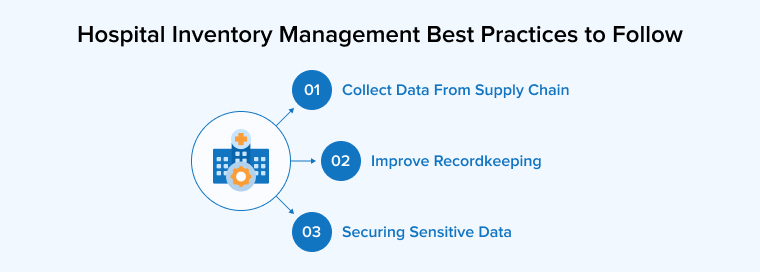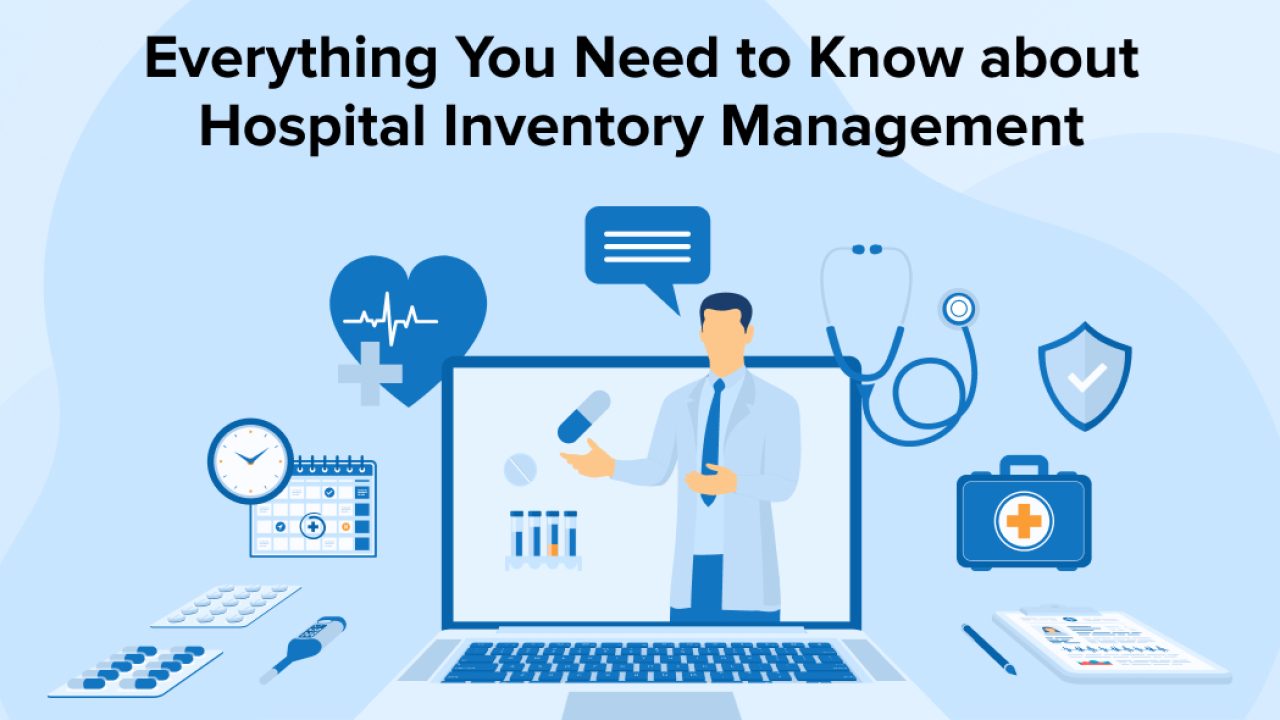Hospital inventory management is a methodical process. It manages and controls the availability, storage, tracking, and consumption of medical supplies, equipment, and consumables inside a healthcare facility.
These management systems involve operations such as stock monitoring, procurement, storage optimization, order processing, and demand forecasting. It utilizes many tools, including as inventory management software, the use of barcoding RFID tracking, and data processing. These tools expedite operations, decrease waste, and prevent shortages or overstocking. This improves patient care by ensuring that healthcare personnel have access to the required resources when needed.
Hospital Inventory Management: What is it?

Hospital inventory management successfully manages and regulates the inventory or commodities within a school or healthcare facility. The basic purpose of hospital inventory management is to guarantee that the correct things are available in the right numbers, at the right time, and in the appropriate locations inside the hospital.
Key features of hospital inventory management include:

Inventory Tracking: Systems and methods accurately monitor and record inventory phases, including item details, amounts, locations, and expiration dates.
Read Also: What A Book on Consignment Inventory System for Hospitals?
Demand Forecasting: Previous data, patient behaviors, and other factors help estimate future demand for supplies and maintain proper supply levels.
Procurement and Ordering: Leading the procurement process, including finding reputable suppliers, negotiating agreements, placing orders, and maintaining vendor relationships.
Storage and Distribution: Arrangement and maintenance of adequate storage facilities. This provides suitable handling and storage conditions for diverse commodities, and establishes efficient distribution pathways throughout the hospital.
Inventory Optimization: Stock data reveals potential for improvement. This includes minimizing surplus stock, deleting obsolete items, and introducing just-in-time inventory management.

Technology and Automation: Inventory management software, bar systems, RFID tracking, and other technologies speed inventory procedures, boost accuracy, and permit real-time visibility.
Hospital inventory planning plays a key role in optimal utilization of medical goods inside healthcare institutions. To further strengthen these processes, hospitals utilize Radio Frequencies Identification (RFID) technology.
How Does Deploying RFID Support Hospital Inventory Management?
RFID is a strong method for identifying and managing goods. It utilizes radio waves to remotely detect and capture information from RFID tags affixed to things. RFID in hospital inventory management enables healthcare organizations use real-time tracking. Automated data gathering and enhanced inventory control to streamline their operations boosts patient care.
Trending Post: How Family Affect Teenagers Mental Health?
RFID is important in hospital inventory management. RFID technology is simplifies and enhances many operations. It influences vitro diagnoses (IVD), the medical chain of control, surgical tool tracking, and lab inventory management.
Read Also : What Does The Laken Riley Act Do? Tove Svendson
Tove Svendson
No comments